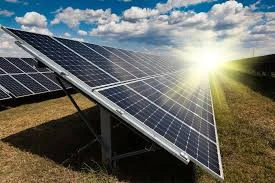solar panel average size
Understanding the Average Size of Solar Panels
As the world continues to shift towards renewable energy sources, solar power has gained immense popularity. One of the key components of solar energy systems is the solar panel. These panels, which convert sunlight into electricity, come in various sizes and shapes. Understanding the average size of solar panels is crucial for homeowners, businesses, and anyone looking to invest in solar energy technology.
The average size of a solar panel typically ranges from 1.6 square meters (about 17 square feet) to 1.7 square meters (about 18 square feet). Commonly, most residential solar panels have dimensions of around 65 inches by 39 inches, translating to approximately 1.6 square meters. However, there are different types of panels available on the market, such as monocrystalline, polycrystalline, and thin-film panels, each varying in size and efficiency.
Understanding the Average Size of Solar Panels
Additionally, thin-film solar panels represent a different size category. These panels are generally lighter and more flexible than their crystalline counterparts. They often come in larger dimensions, which can result in a lower energy density. Although thin-film panels are less efficient, with a production rate usually between 10% and 12%, they are especially useful in situations where space constraints are not as significant, such as on large commercial rooftops or in utility-scale solar farms.
solar panel average size

When planning for solar panel installation, it's essential to understand not just the size of the panels but also the space available for installation. A typical residential solar system requires anywhere from 20 to 40 solar panels, depending on the energy needs of the household and the efficiency of the chosen panels. Therefore, homeowners must measure their roof space carefully to determine how many panels can be comfortably installed without sacrificing aesthetic appeal or functionality.
The average solar panel weighs between 40 to 50 pounds (approximately 18 to 23 kilograms), which may impact structural considerations for residential buildings. Before installation, it's advisable to consult with a professional to ensure that the roof can support the weight of the panels and any accompanying mounting hardware.
Furthermore, the size of the solar system is directly related to energy production goals. Homeowners aiming for complete energy independence may need more extensive systems, inevitably leading to a higher quantity of solar panels. Conversely, those looking to supplement their energy consumption may opt for smaller arrays.
In conclusion, the average size of solar panels plays a significant role in determining the efficiency, weight, and overall energy output of solar systems. While monocrystalline panels are typically standard, both polycrystalline and thin-film options exist to accommodate diverse needs. As more individuals and businesses consider solar energy, understanding these dimensions can help optimize installations and maximize energy savings. Ultimately, embracing solar energy contributes to a sustainable future, making the initial research and investment worthwhile for many.
-
String Solar Inverter: The High-Efficiency Solution for Smart Solar EnergyNewsJul.14,2025
-
Revolutionizing Rooftop Energy with the Power of the Micro Solar InverterNewsJul.14,2025
-
Power Independence with Smart Off Grid Solar Inverter SolutionsNewsJul.14,2025
-
On Grid Solar Inverter: Powering the Future with Smart Grid IntegrationNewsJul.14,2025
-
Monocrystalline Solar Panels: High-Efficiency Power for the Future of Clean EnergyNewsJul.14,2025
-
Bifacial Solar Panel: A Smarter Investment for Next-Generation Energy SystemsNewsJul.14,2025







